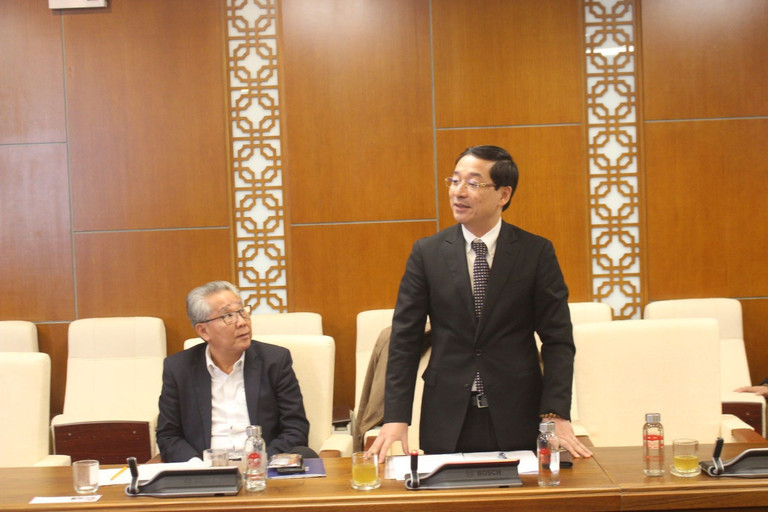
This is a huge figure which shows high demand for supporting industry products. However, the vast market has been left open for many years because of the lack of supporting industry products and the lack of capable Vietnamese enterprises.
Reports show that locally made content of Vietnam-made supporting industry products is still low – 5-20 percent in automobile industry, 5-10 percent in electronics, 30 percent in footwear, 30 percent in textiles and garments, 1-2 percent in high technologies and 15-20 percent for other mechanical engineering sectors.
The number of enterprises in supporting industries just accounts for 0.2 percent of the total 1 million Vietnamese enterprises.
Meanwhile, the first opportunity for Vietnam to develop supporting industries since Vietnam began its doi moi (renovation) policy and attracting foreign invested enterprises (FIEs) was missed.
This was attributed to the lack of a good legal framework to encourage Vietnamese enterprises to join FIEs’ spare part supply chains. There was also no mechanism which encouraged FIEs to increase the localization ratios in their products created in Vietnam after a certain period of time.
Samsung named a list of hundreds of supporting industry products it needed, Toyota and other multinationals also said they seek suppliers of hundreds of component items. However, only a few Vietnamese enterprises can satisfy their requirements, and therefore, cannot become their vendors.
In fact, analysts believe that multinationals have their satellite networks and prefer using vendors of the same nationality, and do not think of creating favorable conditions for Vietnamese enterprises to join their value chains.
Second chance
Vietnam now has another opportunity to develop supporting industries. The relocation of multinational factories to Vietnam, and the important targets set by the 13th Party Congress all present a second chance for Vietnamese enterprises to make a strong rise and build a self-reliant industry.
To reach that end, Vietnamese enterprises not only need to upgrade, but also seek support from industry support centers and professional associations. These are the units which can help them approach target markets, meet chain leading enterprises, upgrade production, reduce production costs, and improve competitiveness.
Currently, the Vietnam Supporting Industry Association and Hanoi Supporting Industry Association (Hansiba) have nearly 500 member companies. The figure is expected to increase to 3,000-5,000 by 2025.
According to Hansiba Chair Nguyen Hoang, the association has run many programs and initiatives to promote enterprises’ competitiveness in Hanoi. One of the programs is the development of infrastructure items specifically designed for supporting industry and hi-tech enterprises.
N&G is one of the pioneers in this field with Nam Ha Noi Industrial Zone (IZ). The project is expected to be implemented in many phases on a total area of 581 hectares in Hanoi, including 90 hectares in Phase 1. The industrial zone has gathered Vietnamese and foreign enterprises to set up production lines in accordance with global value chain. The second phase is scheduled to kick off in 2024.
A senior executive of N&G affirmed that such specific IZs for supporting industry enterprises will be developed in all three regions of the country in accordance with the UN’s 17 Sustainable Development Goals (SDGs).
Hoang has proposed a group of solutions to develop Vietnam’s supporting industries. He believes that the government needs to enact a law on supporting industry development. For the time being, a resolution needs to be set with basic policies for supporting industry enterprises on a trial basis.
He believes that supporting industry development should be implemented in accordance with a master plan, so as to prevent waste of resources is too much investment is poured into the same sectors.
Hoang said that a specific solution package, including solutions in credit, land use rights and tax, needs to be designed to remove existing barriers that may prevent the development of enterprises.
Bang Duong